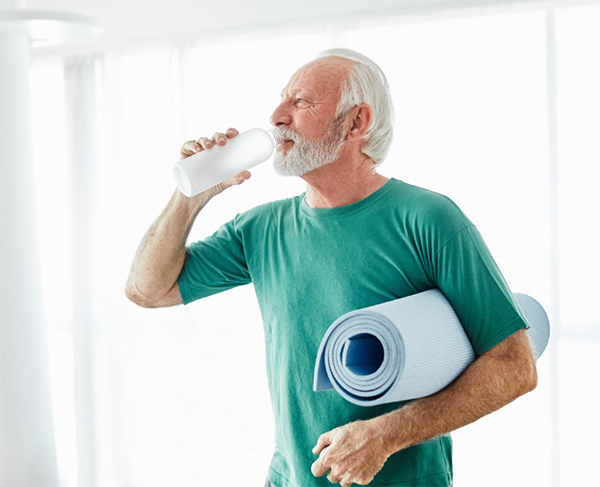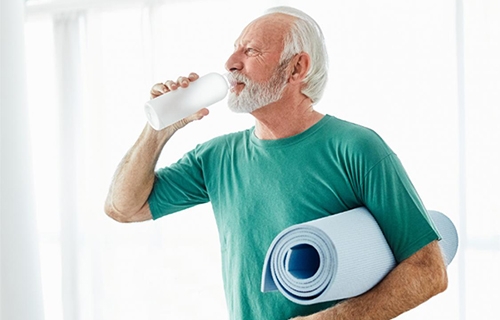
Joint replacement surgery marks a major milestone toward improved mobility and quality of life. But one key factor often overlooked in preparation and recovery is proper hydration. Staying well-hydrated plays a vital role in supporting surgical outcomes and helping your body heal efficiently. In this blog, we’ll explain why hydration is essential before and after joint replacement surgery.
Preparing Your Body for Surgery
In the days leading up to surgery, your body needs to be in its best condition. Proper hydration supports healthy blood flow, maintains electrolyte balance, and keeps tissues well-perfused. Dehydration before surgery can make it harder to regulate blood pressure during anesthesia and may slow down your initial recovery. Drinking enough water helps ensure your organs, muscles, and joints are well-prepared for the stress of surgery.
In fact, surgeons often recommend tapering caffeine and alcohol intake before surgery since both can contribute to dehydration. Opting for water, electrolyte-rich drinks, or clear broths in the 24 hours before your procedure can make a real difference in your body's readiness.
Hydration After Surgery: Supporting Recovery
Postoperative hydration is just as important, if not more so. Fluids help flush anesthesia and medications from your system, reduce swelling, and promote better circulation. This enhanced blood flow is critical for delivering oxygen and nutrients to healing tissues, especially around the new joint.
Dehydration after surgery can also increase the risk of complications such as blood clots, constipation, or urinary tract infections. Drinking enough fluids supports kidney function, reduces inflammation, and helps regulate body temperature as your body works to recover.
If your post-surgical plan includes pain medications, hydration can help minimize side effects like dizziness or digestive upset. Patients recovering from hip or knee replacement often find that staying hydrated makes physical therapy sessions more productive and energy levels more stable.
Simple Strategies to Stay Hydrated
Aim for 8–10 glasses of water daily, or more if advised by your care team.
- Include hydrating foods like watermelon, oranges, cucumbers, and soups.
- Limit diuretics such as caffeine and alcohol, especially during recovery.
- Use a reminder or hydration app to track your intake if needed.
Build a Recovery Plan That Works for You
Preparing for knee or hip replacement surgery involves more than just showing up on the day of the procedure. It starts with taking care of your body well in advance. One often-overlooked factor is hydration. Staying well-hydrated before and after surgery can support healing, reduce complications, and improve overall outcomes. For a recovery plan tailored to your needs, from hydration to advanced surgical techniques, schedule a consultation with us.
AUTHOR: Charles Claps, DO is a board-certified fellowship-trained orthopedic surgeon specializing in robotic-assisted joint replacement surgery at Resurgens Orthopaedics in Atlanta. Dr. Claps is an industry leader in Mako Robotic Assisted Hip and Knee replacement across Georgia, and an active member of the American Association of Hip and Knee Surgeons, the American Association of Orthopaedic Surgeons, and the American Osteopathic Academy of Orthopedics.


